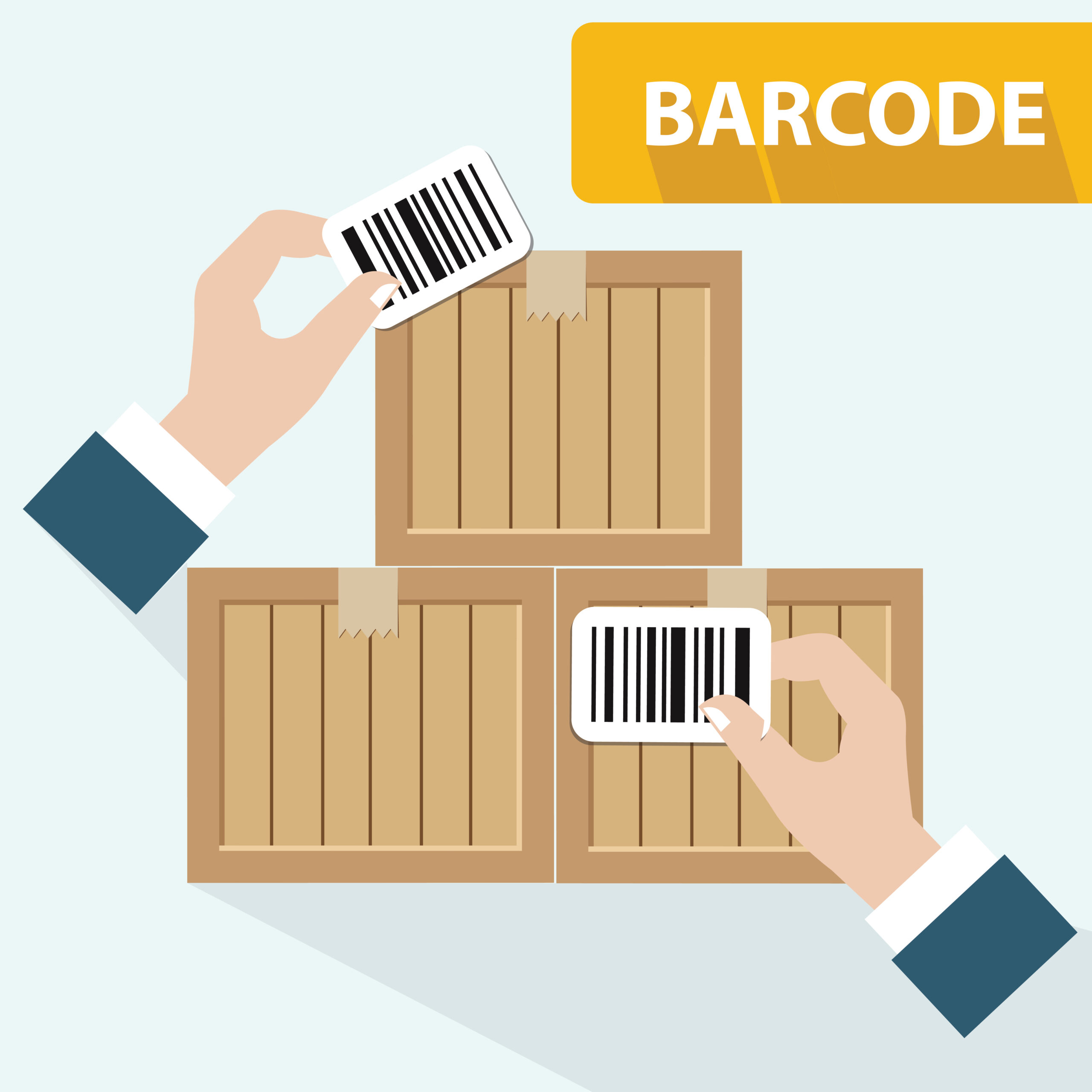Why Serialization is Important in Logistics
In today’s fast-paced world of logistics and supply chain management, precision and efficiency are paramount. Every business owner, whether in the pharmaceutical industry, food and beverage sector, or the automotive world, strives to achieve excellence in their logistics operations.
One crucial element that plays a pivotal role in enhancing efficiency and accuracy in logistics is serialization.
In this article, we will delve into the world of serialization and explore why it is crucial for various industries.
What Is Serialization
Serialization is the process of assigning a unique, individual identifier to each product unit within a batch or lot during the manufacturing process.
This identifier can be in the form of a barcode, QR code, or any other traceable marker. The goal is to create a digital fingerprint for each product, making it easily distinguishable from others in the same batch.
It lets you digitally store any information you need about a product. The type of information digitally held on a serial number can be customized, and allows you to track specific information that you need to know about an individual unit. For example, if you need to know a specific unit’s manufactured date or expiration date, you can track this using serialization.
Now that we understand what serialization is let’s explore why it is essential in logistics:
Why Serialization is Important in Logistics?
Enhanced Traceability
One of the primary benefits of serialization in logistics is enhanced traceability. It allows businesses to track products with unparalleled precision throughout the entire supply chain. Whether a product is in manufacturing, warehousing, or transportation, its unique identifier can be scanned and recorded, providing real-time information about its location and status.
This level of traceability helps businesses pinpoint the exact location of products, reduce the risk of theft, and improve overall supply chain visibility. It’s particularly vital for industries like pharmaceuticals and healthcare, where the tracking of medicines and medical devices is critical to ensure patient safety.
Improved Inventory Management
Serialization also plays a crucial role in optimizing inventory management. With every product unit individually identifiable, businesses can accurately monitor stock levels in real time.
This reduces the chances of overstocking or understocking, minimizing costly errors and ensuring that products are readily available when needed.
Efficient inventory management is especially valuable in industries such as food and beverage, where perishable goods must be closely monitored to prevent wastage and meet consumer demand.
Efficient Recall Management
In an unfortunate scenario where a product recall is necessary, serialization is a valuable tool. With the ability to identify specific products within a batch, businesses can swiftly and precisely recall only the affected units.
This minimizes the impact of recalls on both consumers and businesses, reducing financial losses and preserving brand reputation.
Combating Counterfeiting and Fraud
Serialization serves as a powerful weapon in the fight against counterfeiting and fraud. Counterfeit products can pose significant risks to consumers’ health and damage a company’s reputation.
Serialization allows consumers and retailers to verify the authenticity of products by scanning the unique identifier. This assurance helps maintain brand trust and consumer safety.
Regulatory Compliance
Meeting regulatory requirements and adhering to industry standards is non-negotiable for businesses in certain sectors.
Serialization is often a mandatory component of compliance in industries like pharmaceuticals, where regulations require extensive tracking and reporting.
The list of industries that benefit from serialization is extensive, and while we’ve touched on some, it’s essential to note that serialization is relevant across various sectors:
Pharmaceuticals and Healthcare: In the pharmaceutical industry, patient safety is paramount. Serialization ensures accurate tracking of medications, preventing counterfeit drugs from entering the supply chain and ensuring that patients receive genuine, safe products.
Food and Beverage: Serialization is vital in food safety and quality control. It allows for the rapid identification and removal of contaminated or expired products, reducing the risk of foodborne illnesses and maintaining consumer trust.
Automotive: The automotive industry relies on serialization for tracking individual vehicle parts and components. This ensures quality control and facilitates efficient recall management if defective parts are discovered.
Electronics: Serialization is crucial for electronics to combat counterfeiting. It allows consumers and manufacturers to verify the authenticity of electronic components, reducing the risk of substandard or potentially hazardous products.
Cosmetics: Serialization helps maintain product integrity and brand reputation in the cosmetics industry. Preventing counterfeit cosmetics from reaching consumers ensures product safety and quality.
Aerospace and Defense: In this highly regulated sector, serialization ensures strict government and industry standards compliance. It enhances traceability and accountability in producing and distributing aerospace and defence equipment.
Apparel and Fashion: Serialization helps prevent counterfeiting in the fashion industry, preserving brand identity and consumer trust. It also aids in tracking the production of garments and accessories efficiently.
Alcohol and Beverages: For the alcoholic beverage industry, serialization assists in monitoring and controlling the distribution of alcoholic products. It ensures that genuine products are reaching consumers while minimizing the circulation of counterfeit beverages.
Chemicals and Agrochemicals: Serialization is critical for safety and regulatory compliance in the chemical and agrochemical sectors. It allows precise tracking of hazardous substances, reducing the risk of accidents and environmental contamination.
Consumer Goods: Serialization in consumer goods enhances supply chain visibility and helps quickly identify production or distribution bottlenecks. This ensures products are readily available to meet consumer demand.
Textiles and Apparel: Serialization ensures the authenticity of textile and apparel products, safeguarding consumers against counterfeit fashion items. It also aids in inventory management and quality control.
Logistics and Transportation: In the logistics and transportation industry, serialization improves the tracking of goods in transit. It optimizes routes, reduces transit times, and minimizes the risk of theft or loss.
Medical Devices: For medical devices, serialization is crucial for regulatory compliance and patient safety. It ensures that devices are genuine, traceable, and meet stringent quality standards.
Chemical Manufacturing: Serialization aids chemical manufacturers in adhering to safety protocols and regulatory requirements. It also enables accurate tracking of chemicals through the supply chain.
Biotechnology: Serialization plays a pivotal role in the biotechnology sector by ensuring the traceability and authenticity of critical biological products and samples.
Logistics and transportation are the glue that holds these industries together. Serialization is vital in streamlining these processes, ensuring products reach their destinations on time and in perfect condition.
PiVAL’s 3PL Serialization Services
Now that you understand serialization’s critical role in logistics, it’s time to introduce you to PiVAL. Celebrating 20 years of dedicated service in the logistics industry, PiVAL stands as a beacon of commitment and excellence. As a full-service Third-Party Logistics (3PL) partner in Canada, PiVAL offers a wide range of services to meet your supply chain needs.
What sets PiVAL apart is its commitment to innovation and efficiency. As the first 3PL warehouse in Canada to offer serialization services, PiVAL empowers businesses in various industries to leverage the advantages of serialization for their logistics operations. Whether you’re in pharmaceuticals, automotive, or any other sector, PiVAL can help you enhance traceability, improve inventory management, streamline recall processes, and safeguard against counterfeiting and fraud.
Conclusion
In the world of logistics, serialization is not just a buzzword; it’s a fundamental tool that can revolutionize your supply chain operations. Whether your business operates in pharmaceuticals, food and beverage, or any other industry, serialization can make a significant difference in efficiency and compliance.
As you explore the possibilities of serialization for your business, we encourage you to reach out to PiVAL, your full-service 3PL partner in Canada. With two decades of experience and a commitment to innovation, PiVAL is well-equipped to help you harness the power of serialization for your logistics needs.
Contact PiVAL today and embark on a journey towards enhanced efficiency, compliance, and success in the world of logistics and supply chain management.
Stay Up-To-Date
There's always something new from PiVAL



Leave a Reply